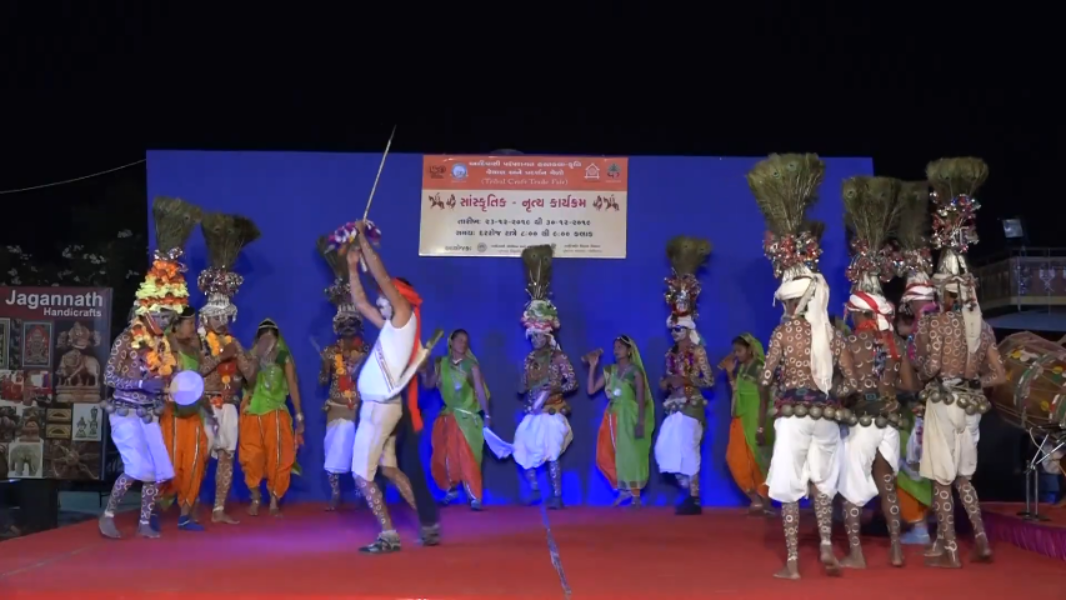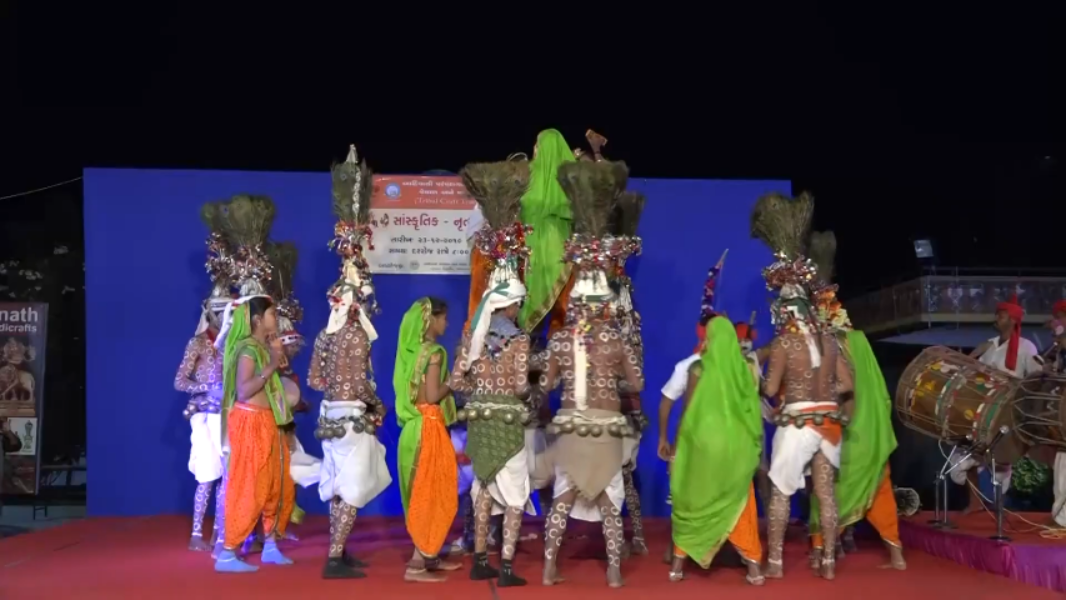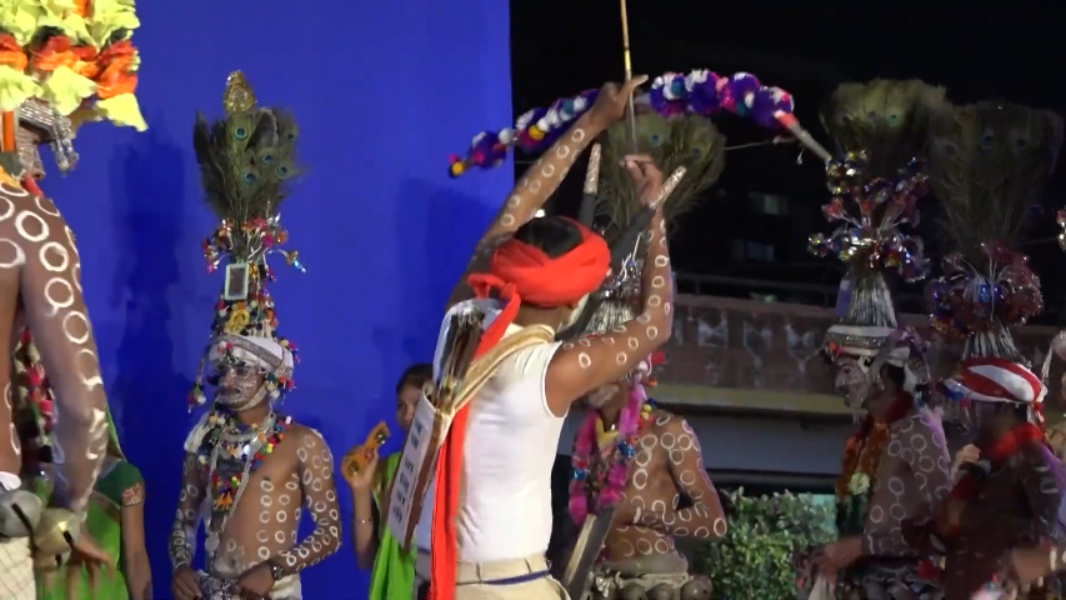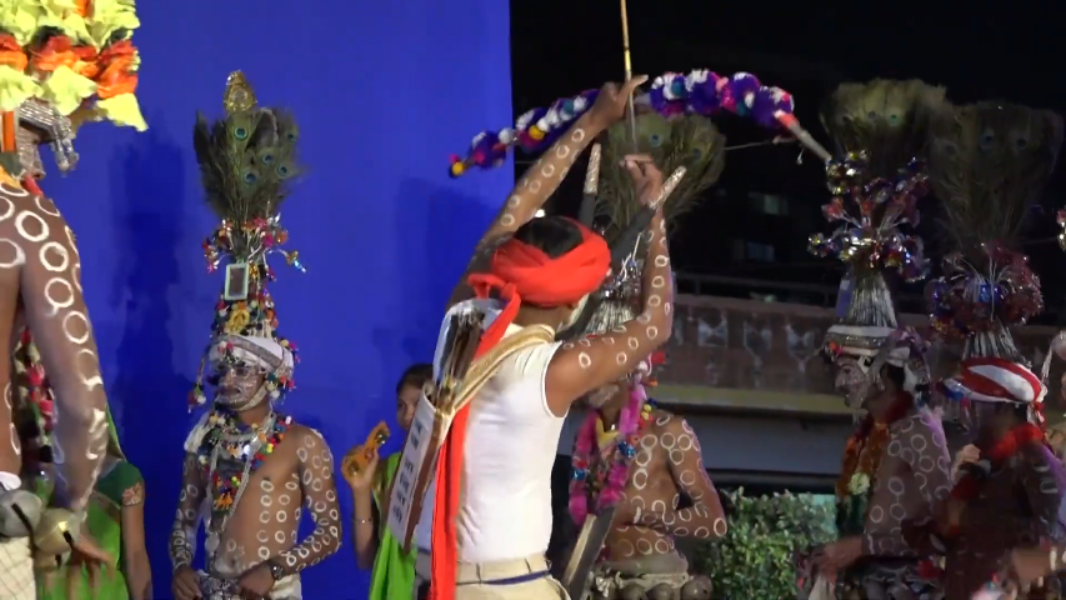tribal dance
Gheraiya Dance, gujarat

The Gheraiya Dance is a sacred, ancient tradition believed to honour the gods and goddesses of the Bhil and Rathwa tribes. Legend says that Raja Phanta Dev and Ganda Thakur Dev, sons of King Toranmal, began this ritual during the Holi festival as a divine celebration. The dance reflects worship, where gods and goddesses such as Kalika Mata and Rani Kajal Mata have been honored in symbolic gestures. It is performed reverently, showcasing the spiritual commitment of people's lives and development. Both the Bhil and Rathwa tribes of Gujarat in India are vibrant in culture, with festivities such as Holi forming an essential part of their traditions. These tribes perform the Gheraiya Dance to seek blessings from ancestors' deities for the welfare of their family members.. Their festivals symbolize deep faith, uniting the community in celebration and worship. The tribes gather during these events to commemorate their gods and preserve age-old traditions, creating an atmosphere of joy and reverence.

During the Gheraiya Dance, both men and women wear vibrant, traditional outfits that display intricate artistry. Men wear white dhotis, with clay circles painted on their bodies, and adorn themselves with peacock feathers and mirror-laden crowns. A heavy ghughra belt weighing around 10-15 kg is worn around their waists. Some men dress as women, wearing bangles, anklets, and traditional ornaments. Women wear colourful attire with red and blue combinations, adorned with floral and peacock feather decorations to complete the sacred appearance connection between the community and their deities. The Gheraiya Dance relies on self-made instruments, crafted by tribal artisans with great care. Five main instruments are used: the big drum, thali (brass plate), flute, tatodiyo, and khattu. The drum, made from special woods like mango and teak, undergoes ritual preparation. Other instruments, such as the flute from specific bamboo, add rhythm and harmony. This music, steeped in tradition, echoes through the dance, emphasizing the spiritual essence of each step and sound.

The Gheraiya Dance is performed during the Holi festival in the Kawant taluk of Gujarat, a vibrant tribal gathering filled with energy and devotion. This unique dance is a highlight of the ger fair held on Holi’s third day, where the community dances in a large circle, creating an immersive cultural experience. People from across the country attend to witness this festival, captivated by the rhythmic movements, elaborate costumes, and the deep-rooted traditions of the Rathwa and Bhil tribes that celebrate unity and joy.



